Heads Up: Our posts may contain affiliate links! If you buy/book something through one of these links, you will not pay an extra penny, but we'll get a small commission, which keeps this blog up & running. Thank you!
Travelling as Feminist, a struggle at home and abroad
“Where do I even start”- that was one of the slogans a girl was holding for the Woman’s Day march in 2020 in Malta. During this march, we protested in Valletta, the capital of Malta, against the ban of abortions in the country (the last European country that prohibits abortion no matter what, in ALL cases), against gender-based violence, against femicides and cultural norms promoting discrimination. We keep facing so many issues that we don’t even know where to start and how to talk about them. Well, we actually know how to talk about them, the problem is that men (mainly) either do not listen or practice whataboutism on us. Travelling as a feminist can be very challenging – and I am not even referring to the safety precautions that women need to take everywhere in the world anyway. I want to focus more on the internal battles and struggles we, feminist travellers, have to deal with on a daily basis.

Being a passionate traveller breaks down to one thing: your desire to explore the world and to learn about it as much as possible and as much “authentically” as you can. You want to meet people and hear their stories, to be enthralled by landscapes and cultures you have never seen or imagined before. Being a female passionate traveller though arises some additional complications. You die for having a coffee at this local shop but there are only men inside. You feel like sleeping at a mixed hostel but you have heard stories about female travellers being assaulted in some. You would love to have sex with this cute traveller you just met but what if (s)he is dangerous? You need to take a taxi but you have to remember not only to book it from an app (if available) but also to take photos of the car plates (IF something like that exists) before getting in and inform your relatives/ friends. You want to eat by yourself but random men send you free shots or, even worse, start talking to you or sneakily follow you back to your accommodation. You want to be left alone and many men do not seem to understand and respect this. Pffff, just some of the reasons why we need feminism, right?

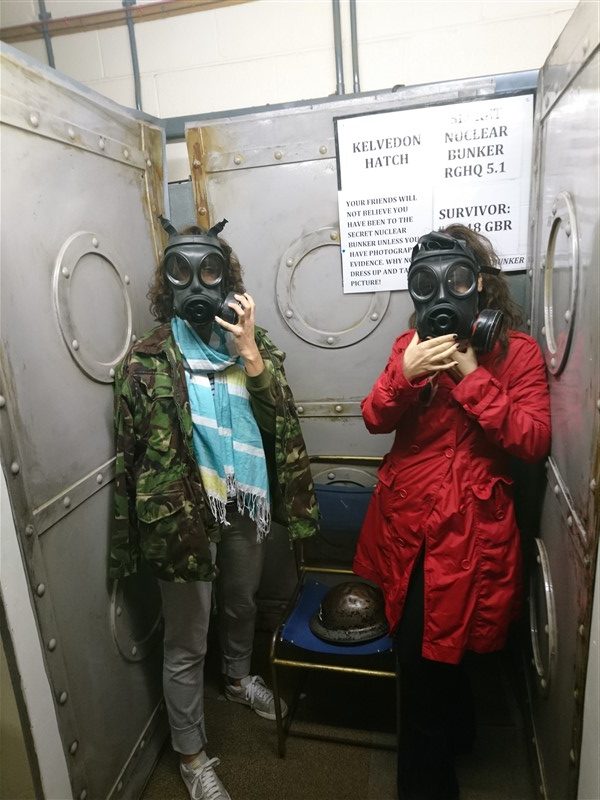
Every woman deals with the same problems, why travelling as feminist is different?
Good question! I am sure we all related to all the before-mentioned so far, right? Let’s add the last piece to the equation. Being a female feminist traveller is even trickier. Why? For countless reasons but let’s see some basic ones: First of all, we have realised that there is systemic oppression against us which has been constant for centuries, hence, deep-rooted. Feminism has already won many battles globally but the world is not an equal place yet (and as researches indicate.. it won’t be any time soon). As feminists, we can not “un-see” casual sexism, patronising behaviours, and spiteful “jokes” anymore. We recognize this pressure every day, in every aspect of life, and of course during your travels -look at the examples above!- but at the same time, for our own mental health, we have to select our battles thoroughly. We know the roots of the phenomenon (it’s called patriarchy, let’s say it louder for the people at the back) and we are tired of people saying “Oh, so you hate men!” (no, we hate patriarchy). We can not stay put when we (or other women) grapple with misogynist comments and attitudes but we can’t do much either- safety first!
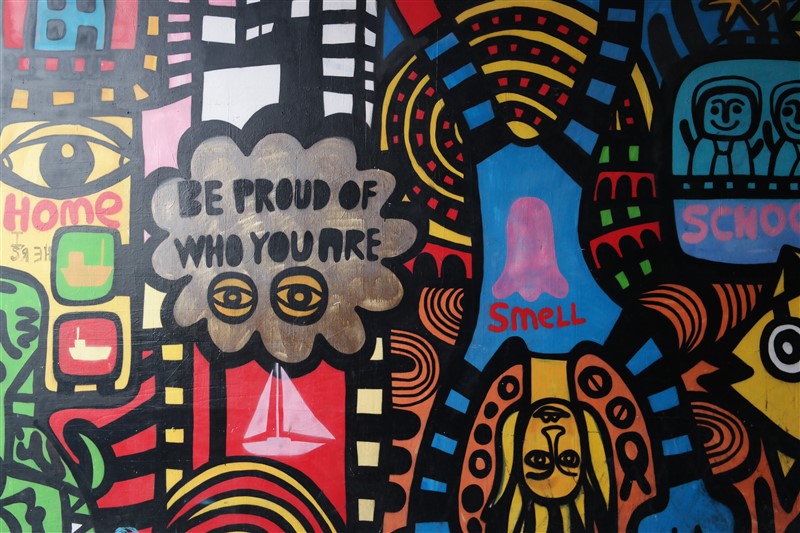
Travelling as feminists can be challenging because we sometimes feel angry and disappointed but, since we are “just visitors” here, we want (and have to) respect local customs and traditions. But, on the other hand, being harassed in the streets shouldn’t be excused as “cultural difference or norm”, right? The inner feminist screams “THIS IS NOT FAIR” and the traveller (or the good girl…) “it is how it is you can’t force the world to change; stay safe and move on”! If this is not the definition of an internal battle I don’t know what it is!
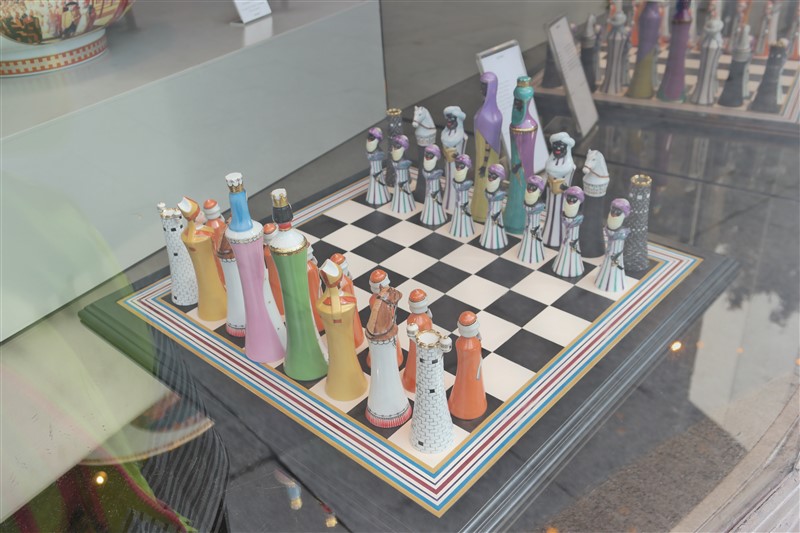
Planning your travels as a feminist
Let’s think of this through another prism. Personally, I don’t exclude countries from my bucket list based on media or people’s stereotypes, I prefer to form my own opinions. As a result, I have visited countries and places deemed to be “unsafe” for women. When I start to plan my next trip there are so many things to consider: flights/ tickets/ things to do & see/ what to eat/ local customs/ language barriers/ itinerary/ accommodation/ vaccination & visa if required etc. These are the obvious ones that every traveller and tourist has to take into account anyway.
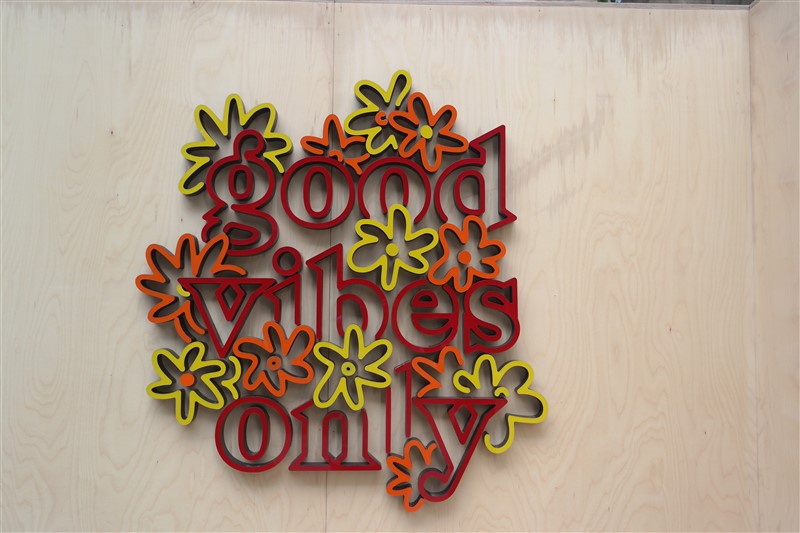
And then… the reality hits! I dive into the specific gender-inequality problems and challenges this country faces; even if I am all for a new country and I don’t exclude countries as I mentioned, I get discouraged by high femicides, rapes and domestic violence rates, child marriage, education, politics, FGM (Female Genitalia Mutilation please learn more about it), human trafficking etc. We know that no country is perfect or has totally gotten rid of sexism but some countries seem to be worse than others. However, biases don’t help either; who would expect that Denmark, the number one at Gender-Equality Index for 2019, has fewer women MPs than Senegal and Rwanda, despite the Nordic state having a GDP per capita 56 times higher than Senegal?
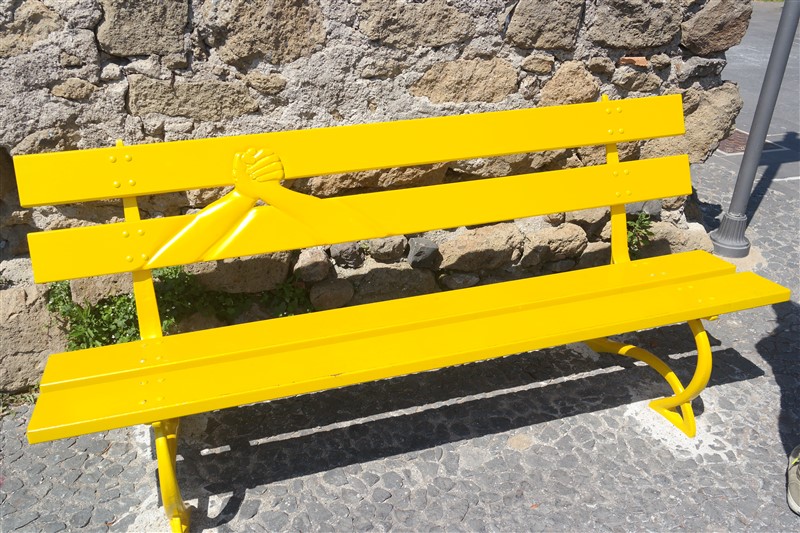
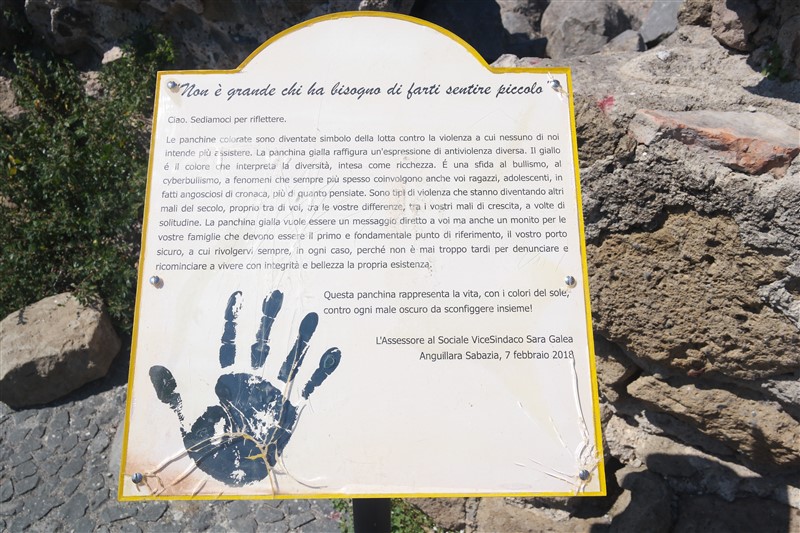
What should we do as feminist travellers then?
I don’t have a clear or a widely-accepted answer here. I know that many feminists avoid at all costs countries that are notorious for women’s rights violations. On the other hand, I know that there are feminists who do not dig into things like these when they travel, they just pick up a country and go. I totally get both of these reactions because, honestly, we are talking about mental surviving here. Frankly, in every case, whatever you choose, being a feminist traveller can be exhausting especially if you just need to unwind by taking a holiday and you neither want to deal with sexism nor to think of more patriarchal obstacles. The practical ideas below are just my own way to make a tiny difference when it comes to feminist issues I encounter while travelling since I choose to visit any country no matter what.
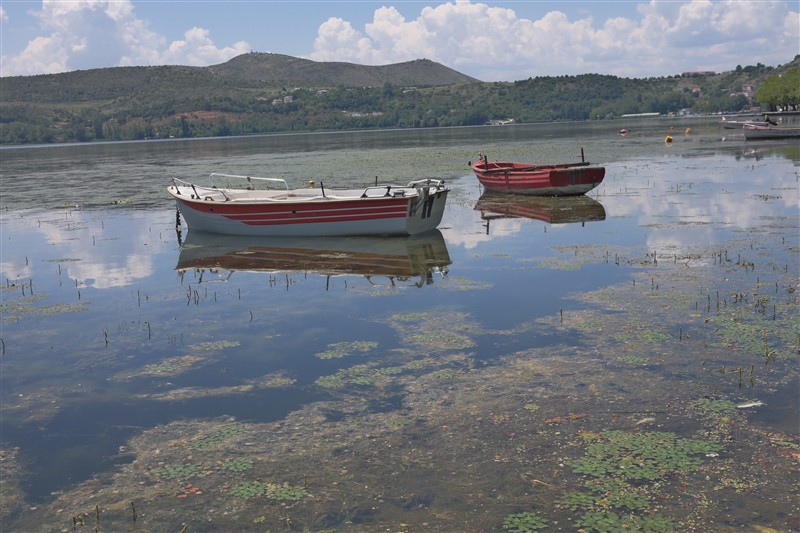
Realistically and ethically speaking, we can neither change other cultures from our – sometimes privileged- position (we don’t share the same experiences anyway) nor apply our perspectives to others but at least we can offer what women might need from us: encouragement, financial help, support or a sympathetic ear. What I do is to try to help at least one local organisation/ NGO/ community that deals with one of the top gender-based problems of the country I am about to visit.
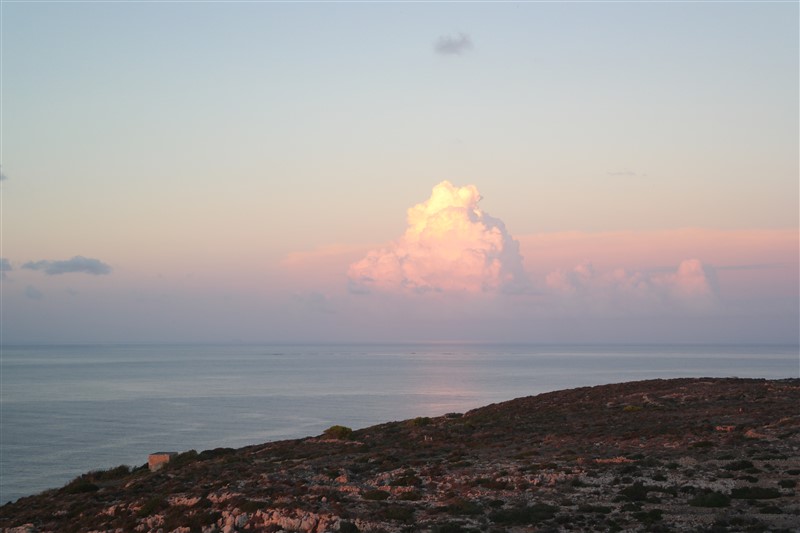
For example, in a country where women struggle to be financially independent, I would look for women’s associations and buy their products or spend my money on women-owned businesses. In a country fighting against domestic violence, I would volunteer at a women’s shelter. In a country where women are getting paid less (well, pretty much everywhere!) I would rather stay in a local woman’s hotel/ property. In a country where women are underrepresented, I would document and share some of their stories through my social media or blog. In a country where young female artists are earning less (by the way this is more common than you think!), I would attend one of their workshops/exhibitions and buy their designs and artworks. In a world where men hold the majority of the wealth/ land (and, as result, our travel money is more likely to end up to them anyway) why not support women directly? Last but not least, something VERY important we tend to forget: let’s educate ourselves of how tough traveling as a woman of colour can be…
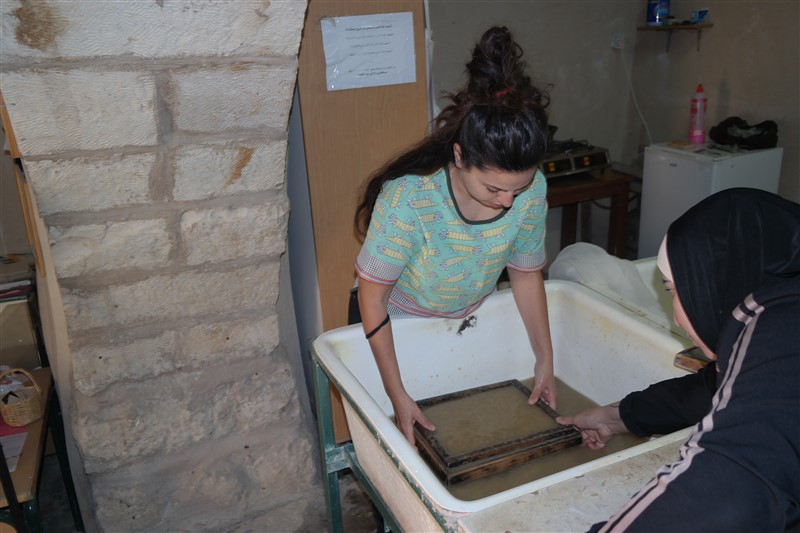
It’s crucial to remember that even in the most anti-feminist countries not all locals think/ feel the same way about gender equality. We need to travel with an open mind and as few prejudgements as possible. I won’t forget an amazing Tanzanian young guy who was super angry about FGM (a common practice in Tanzania but, thankfully, in decline) who told me that this “tradition” is solely practiced to reduce women’s sexual pleasure, it’s unacceptable and has to stop! On the contrary, I won’t forget either a European guy who mansplained me (for the same topic) that this is “their tradition” and we may need to respect it and leave it as it is… Undoubtedly, the locals are the first to demand these changes (and they need to find their way to address the issue) but we can’t ignore this blood-soaked reality for millions of women and girls out there or label it just as “tradition”. Let’s also not forget that FGM is being practiced everywhere, even on a smaller scale.

Moving on to something else… how do you deal with the double standards in religious places? As women, we need to compromise (to wear a head kerchief for example, or to cover our legs) all the time otherwise we will be denied entrance. I would be fine with it should the guidelines be the same regardless the gender- for instance, if everybody should cover their hair before entering a sacred place. Having different standards though just indicates discrimination against gender under the excuse of “religion”. How come my calves are “provocative” but my boyfriend’s not?
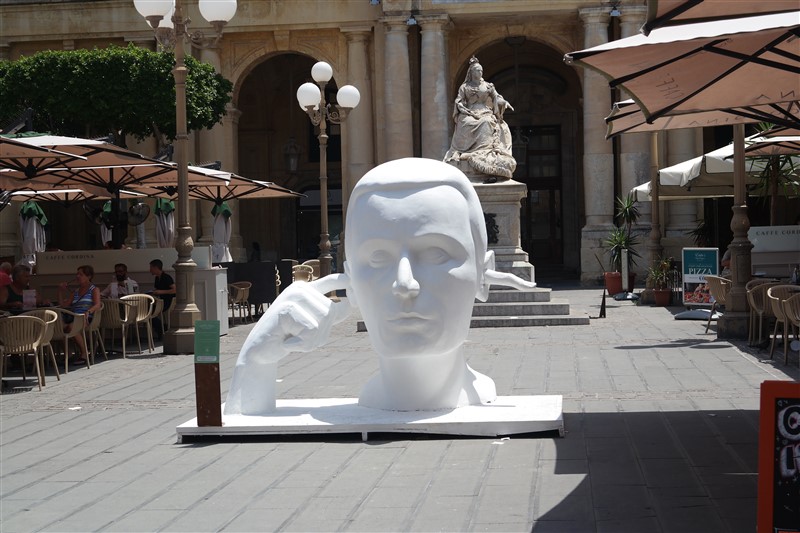
After many years of accepting these discriminatory rules (in churches, temples, mosques, etc) as a traveller I decided to stop visiting religious places altogether when the latter apply different rules according to the visitor’s gender assumption. The icing on the cake (that pushed me to make this decision) was an incident that took place in Thailand back in 2018.

The story goes like that: I want to visit an outdoor Buddha sculpture that is almost next to the beach. I wear long pants and a tank top (the tank tops are not acceptable in Thai temples but I didn’t know that sometimes even visiting an open-space sculpture can cause problems). Getting closer to the sculpture, a local guy starts shouting at me “Cover your shoulders or back off”. Ok, fair enough, sorry I didn’t know! I always carry a shawl with me for this occasion anyway. But as he approaches me, I notice that he wears a tank top way smaller than mine (picture him as a well-built man) and I’m like “I’m sorry but you’re standing here all day wearing a tank top as well”. “But I’m a man” he yells! I’m breathing slowly now. “And? What’s the difference between my shoulders and yours besides you being brawnier? ”. He looks confused and he nods “God said so”. I insist “To you”? “Well, actually my teacher ordered this. Men and women are different anyway ”. Tired of this, wearing my shawl, I mumble “I see… My shoulders are sinful and yours.. innocent”. If he had given me a reasonable explanation, a story behind this rule I might have thought differently (even if I disagree with double standards anyway). But I feel tired of all these gender-based rules and I drift aimlessly thinking that from now on I will be visiting no religious places enforcing double standards. It’s easy; I won’t be disrespectful trying to push my beliefs / my appearance (their religion their rules after all and any change should start from their people anyway); I will just avoid those places as much as possible- especially if they ask for an entrance fee. I might miss something important for the country’s identity, yes. But my inner peace is more important at the present time. By the way, later on, I was told by Thai friends that tank tops are not acceptable for men either so I am unsure why this guy felt so entitled to wear a tank top while he was trying to make me cover up. Oh yes, because “he is a man” I guess!

Travelling as a feminist is not easy since sexism is an inextricable piece of our journey… well, to be fair, sexism and double standards negatively affect every woman’s life even when we just stay at home so… This post was supposed to be shorter but it has already reached 2500 words and I haven’t even managed to write everything I was planning to.
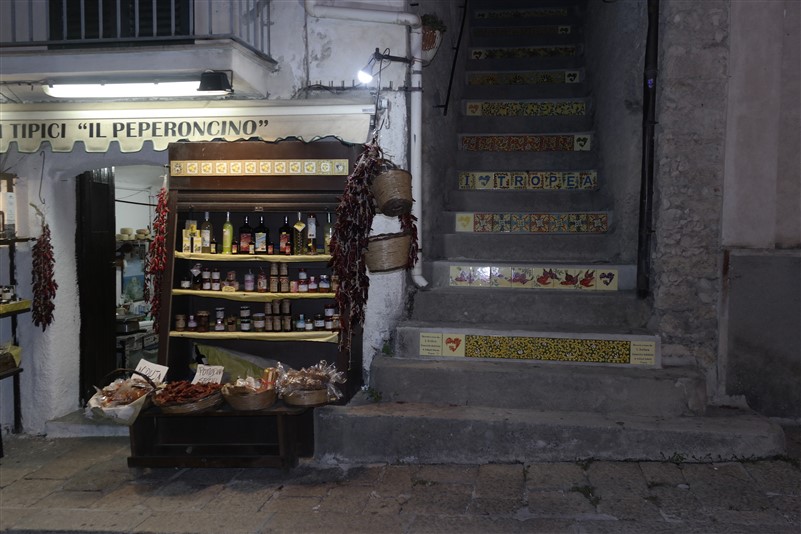
I think it’s time for you to communicate with me about your opinions! If you identify yourself as feminist*, do you choose which country to visit based on gender-equality rates? Do you exclude countries because of that? How do you tackle double standards while on the road (towards you or others)? Can’t wait to read your thoughts!
*Being a feminist is a life core belief against gender-based discrimination and double standards. “A Feminist is anyone who recognizes the equality and full humanity of women & men”, Gloria Steimen, American Journalist & Activist
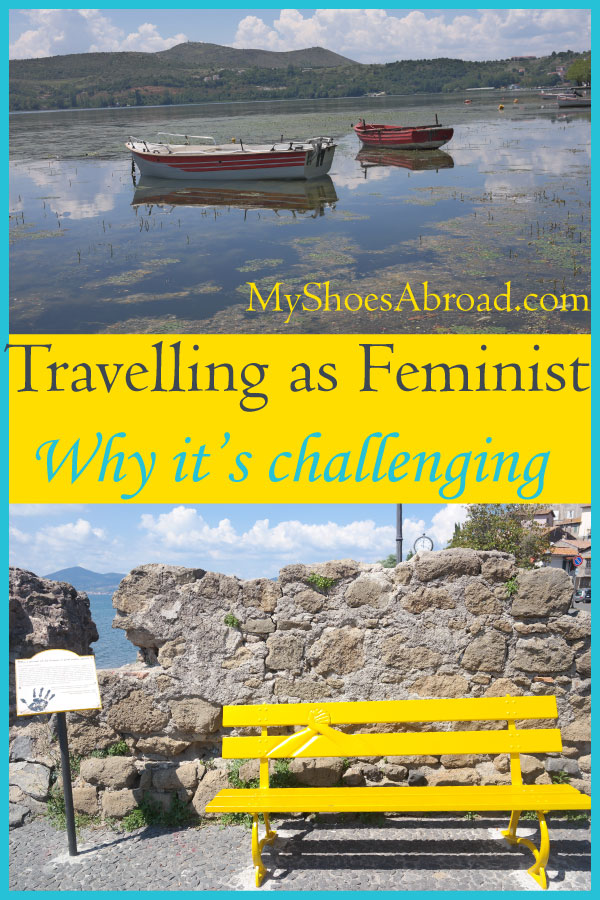
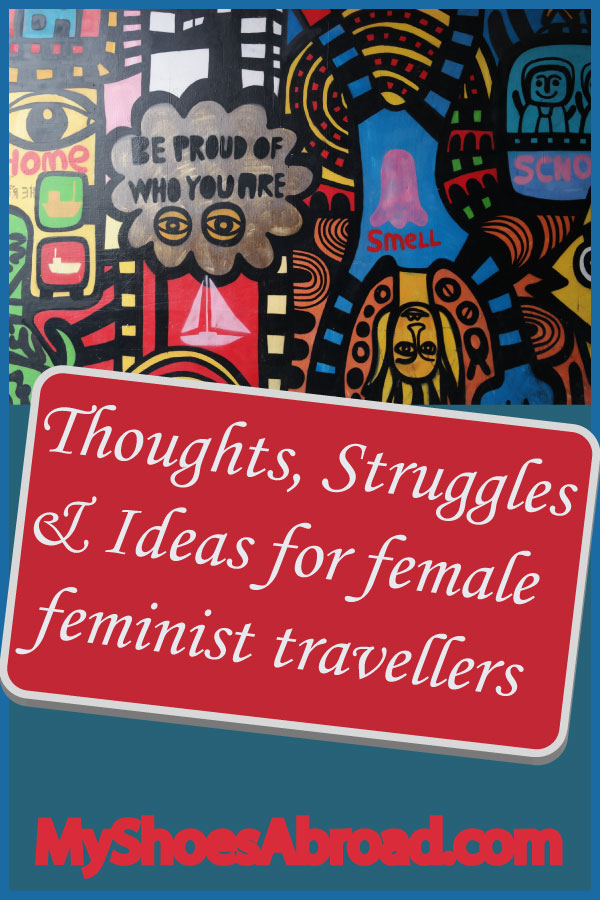
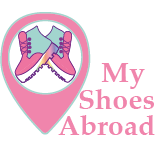

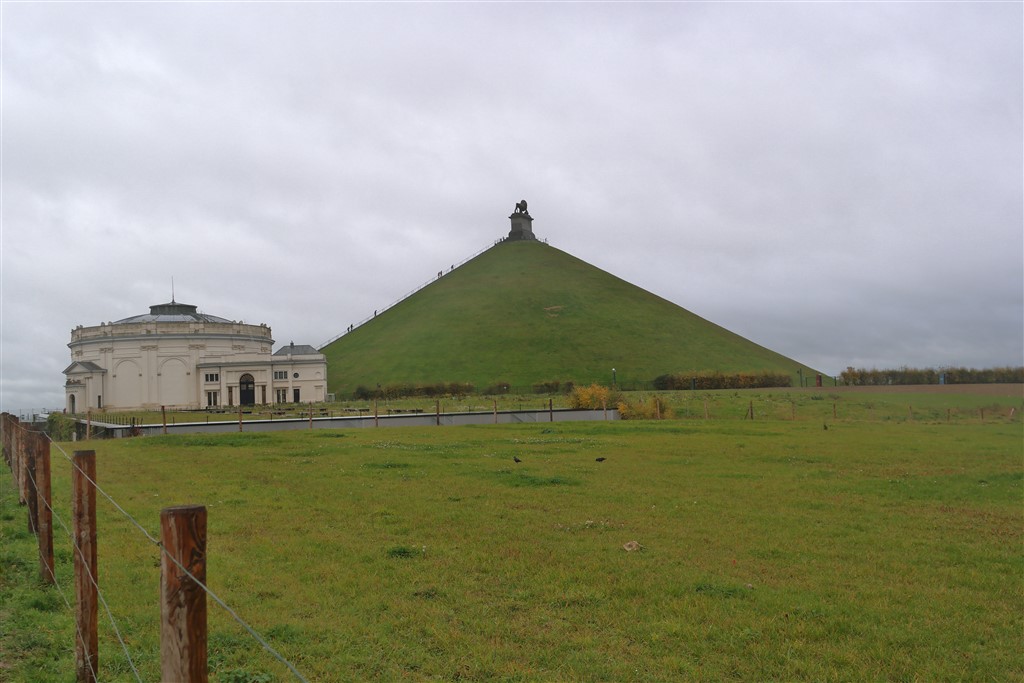


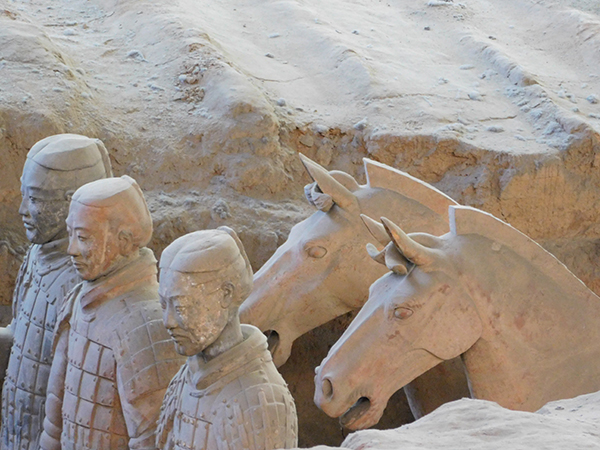
I love love love this post. I loved reading your experiences and thoughts – I think for solo travel I would be more worried about travelling to “unsafe” places, but definitely would not avoid them all together, I still want to see everywhere!
This was an interesting read. Yes, unfortunately there is still so much that needs to be done. But luckily we can be part of this global change. It takes time, but we need to get our voices heard. And we need to keep educating the world that feminism is, really, about equality. Thank you for writing down your thoughts.
I think traveling as a feminist can be such a great opportunity to support women in other countries. I also try to buy products from women’s collectives or visit feminist spaces. In general, it also feels more comfortable to be in such places anyway. The best thing is really to support other women and to make their stories known.
I just loved to read this! Amen, sister! It’s really hard to decide how to approach this, but as a Human Rights lawyer (turned travel writer), I want to see different cultures first hand. I hated wearing a hijab, but I loved the people and the diversity of Iran. I couldn’t breath covering my shoulders and legs in the middle of summer in Ramadan in Morocco, but I loved experiencing the culture. I could go on and on with the examples, but my point is that the best way -for me anyways- of learning about a country is by visiting it. If the traditions are against what I believe, I want to see it to understand why, and to have more basis to fight it.
I really enjoyed this post! Not a lot being said about it in the travel space and you are right , it is sometimes too complicated and we don’t know how to deal with some sexist issues! Brought up some great ideas!
Great post! I can relate to so much of this…and we all seem to have at least one story like your memory of the bloke in Thailand. I hoped if I had a daughter things would be better in the future for her…but I think it’s going to take a whole lot more time to fix. 🙁
p.s. did you ever listed to the guilty feminist podcast? I think you’d love it. 🙂
This is such an interesting post. I’ve always struggled with how women are treated around the world. I really struggled with it in Turkey and Morocco but it can happen anywhere!
A very important read! the part about whether to speak up or stand by when you witness injustice ‘ as a visitor’ really resonated with me. A lot of research into understanding the local norms of places we travel to is important. Thanks for sharing this, very well written!
i think it’s great that you don’t strike off places just because of how they treat women. i think the core ideal of any feminist should be to want things to be better for women no matter which part of the world is concerned. to boycott countries on ideological differences would actually be counterproductive because on the grander scheme of things it actually really doesn’t change anything nor does it make things better for the women there. if any breakthrough is to be made, it can only be done through clarity and a better understanding of the mechanisms of said country and its culture.
I definitely always look at how safe countries are to travel to for women, but like you I like to acquire my own opinions of places as well. I’ve only been followed a couple of times by men, most recently in Russia, but we managed to get rid of them. It’s a shame things like this still happen.
Thank you for writing this post!
I’ve chosen my current destination of Germany partially because I understand attitudes towards women to be better than in my home of Australia. I look forward to soaking up the attitudes and learning what I can.
When the Global Gender Gap Index by the UN comes out every year, I study it closely. I know that statistics can only tell part of the story, but I want to know which countries are doing better, and why.
Some countries like India and parts of Latin America I would probably not solo travel in. I’d consider going with a friend – preferably one that passes for a cis man.
I haven’t been to Africa or Latin America because of their level of misogyny, though I have been to Asia, Europe and North America. Having been to Turkey and Malaysia, I know that travelling in the majority Muslim countries doesn’t make me very happy due to the disrespect, so I am unlikely to go to the Middle East… unless it’s for a stopover in Dubai, if I’m in the right place at the right time.
I’ve been getting more interested in Slovenia, Croatia and Estonia lately, and it would be nice to keep an open mind and look for the encouraging signs in those places…
I totally agree that change needs to come from within a specific nation. Even if a traveller protests, they are likely to be seen as “importing foreign values” and would be regarded as less valid in their views as a lical
Thank you for your thoughtful response! I hope you enjoy your time in Germany, there are issues there too but certainly not as bad as in other countries. The interesting thing is that how countries that are considered “westernised” can have worse positions than others we think they are more “behind” when it comes to women’s rights. For example in Malta abortion is illegal under any circumstances and women here have to travel abroad or buy pills to be shipped from outside the country (with all the risks this involves) when in many African and Muslim countries abortion is legal. Have safe travels!